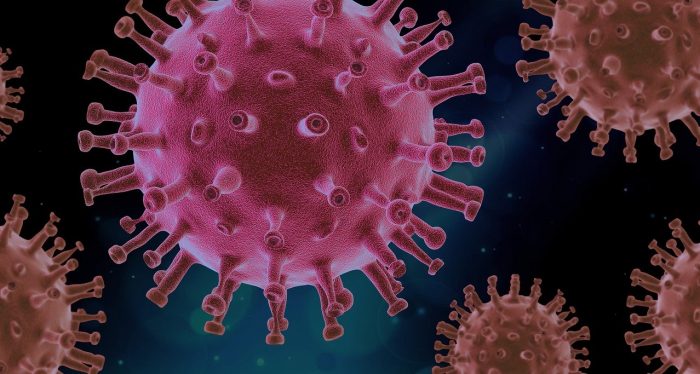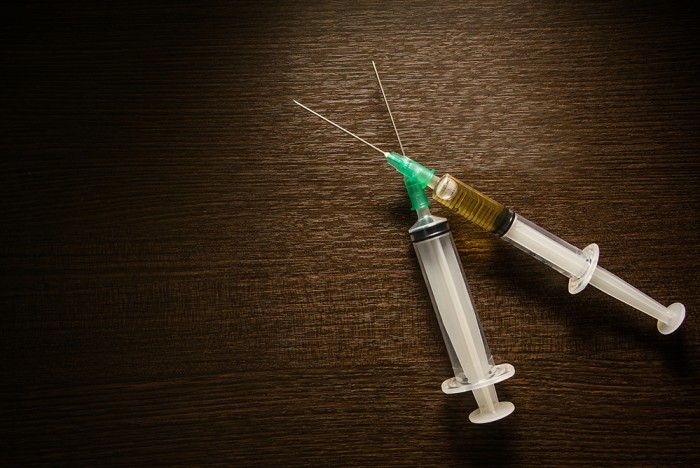Decision-Making for Adults with Disabilities Webinar — Wednesday, April 21, 2021
Control over your finances involves making many decisions — for example, when you buy a car, choose an apartment, or negotiate a salary. But you don’t have to make those decisions by yourself. In fact, many of us use a network of support, including family, friends, and trusted advisors. In this webinar we will discuss the differences among supported decision-making, representative payee, guardianship, and powers of attorney.
Attendees will learn:
- Different ways people with disabilities can get help in decision-making about health care and money
- How to incorporate supported decision-making
- Ways to self-advocate for the control in decisions you want and need
- Practical next steps and resources for help.
You can register here for this webinar.
This webinar is part of Money Talks, a free series hosted by Pennsylvania Assistive Technology Foundation on financial empowerment for people with disabilities. If you are a person with a disability, a family member of someone who has a disability, an advocate, an educator, or a service provider, this series is for you. Sessions will include 30-45 minutes of interactive learning and 15 minutes for questions. Each session will be fully accessible, and recordings and slides will be made available. Learn more, view previously recorded webinars, and register for this month’s webinar at Money Talks.
DDAP Announces Grant Initiative Funding Opportunity
The Pennsylvania Department of Drug and Alcohol Programs (DDAP) announces a new grant initiative funding opportunity. DDAP is accepting applications from entities with the capacity to deliver employment support services to individuals in recovery from Substance Use Disorder (SUD) seeking to enter the workforce. Employment support services under this project include but are not limited to: vocational assessments, resume writing, interviewing skills, job placement, and transportation assistance related to employment. Applicants shall identify at least one employer partner that is committed to providing employment opportunities to individuals in recovery from SUD.
Applications are due by Monday, May 17, 2021 at 12:00pm. More information is available on DDAP’s website.
RCPA Member Webinar on April 26 Featuring Jen Swails, Budget Secretary

The RCPA Member Update webinar scheduled for Monday, April 26, 2021 from 2:00 pm–4:00 pm will include a presentation from Secretary of the Budget Jen Swails, who will discuss several issues, including the impact of the American Rescue Plan on state revenue and programs, particularly those programs related to health and human services. There will also be an opportunity for discussion and question and answers.
Ms. Swails has a strong background in health and human services, having served as a senior analyst for various state government fiscal offices prior to being named Budget Secretary. She has presented before at RCPA meetings, and we are pleased to have her available for this discussion.
Please register here to attend this webinar. We look forward to your participation!
RCPA Establishes D&A Medication Subcommittee
RCPA’s Drug & Alcohol Division has established a Medication Subcommittee. As medication becomes more integral to the addiction treatment system, RCPA members have an opportunity to influence medication-related policy through their experience and expertise. Consider:
- Access to and integration of medications to treat addiction at all levels of care has become a priority in Pennsylvania.
- Acceptance of medication as an integral part of treatment continues to grow, especially in areas historically reluctant to embrace it, including criminal justice.
- The COVID pandemic has changed the treatment landscape, ushering in telehealth and the promise of broader access to care, including medication.
In considering access and integration challenges, regulations, reimbursement, best practice, research, and provider experience, this subcommittee will set an agenda and work with RCPA leadership, other RCPA members, state regulators, payers, legislators, and other key stakeholders to advance that agenda.
Your expertise is invaluable in helping the treatment provider community set this agenda and achieve its goals. If you are interested in participating in the Medication Subcommittee, please email Jason Snyder, Director, RCPA Drug & Alcohol Division.
Biden Drug Policy Director Pledges to Expand Drug Treatment as Overdose Deaths Rise
DOH Extends Pause on Johnson & Johnson Vaccinations Following FDA/CDC Recommendation
FOR IMMEDIATE RELEASE
April 15, 2021
Harrisburg, PA – The Pennsylvania Department of Health today notified all COVID-19 vaccine providers that the pause in administering doses of the Johnson & Johnson (Janssen) vaccine will be extended until April 24 or until updated guidance is provided from the Centers for Disease Control and Prevention (CDC) and Food and Drug Administration (FDA).
Earlier this week, the department recommended a pause in administering Johnson & Johnson vaccine until April 20 to give the CDC and FDA time to review six incidents of rare blood clots that occurred within two weeks of receiving Johnson & Johnson vaccine. The CDC’s Advisory Committee on Immunization Practices held an emergency meeting yesterday that ended without taking a vote to change the current recommendation to pause administering the Johnson & Johnson vaccine. Another meeting is expected within 10 days.
During the meeting, the CDC acknowledged that one of the six cases being studied involves a 26-year-old Pennsylvania woman who recovered after treatment at a New Jersey hospital. The CDC is not releasing personal information in the case. These six cases occurred in women between 18 and 48 who were among the 6.8 million Americans who received the Johnson & Johnson vaccine. Out of the more than 6.6 million vaccine doses that have been administered in Pennsylvania, only 247,063 doses have been Johnson & Johnson.
This announcement shows that the federal oversight process of a vaccine’s safety and effectiveness is working, and all steps are being taken to protect Americans. “The safety procedures built into the vaccination process are working and should instill confidence in the safety and effectiveness of the available COVID-19 vaccines,” Acting Secretary of Health Alison Beam said. “I urge individuals who have appointments scheduled to receive a Pfizer or Moderna vaccination to keep those appointments.”
People who received the Johnson & Johnson vaccine who develop severe headache, abdominal pain, leg pain or shortness of breath within three weeks of their vaccination should contact their health care provider. For more information, please see the CDC/FDA guidance.
The department also has sent communications to stakeholder groups and others who have received the Johnson & Johnson vaccine as a part of a special vaccination initiative.
While vaccine supply from the federal government remains limited, the Department of Health is working to ensure the vaccine is provided in a way that is ethical, equitable and efficient. To keep Pennsylvanians informed about vaccination efforts:
- The Your Turn tool provides a way to register to be alerted when it’s your turn to be vaccinated.
- A commonwealth COVID-19 vaccination guide explains the current process for getting one. Pennsylvanians with questions about the vaccination process can call the Department of Health hotline at 1-877-724-3258.
- Vaccine provider map to find a COVID-19 vaccine provider near you.
- All of the locations that received vaccine and how much they have received can be found on the COVID-19 Vaccine Distribution webpage.
- Vaccine dashboard data can also be found on the website to find more information on the doses administered and showcase demographic information.
- Pennsylvanians can provide feedback on the Pennsylvania COVID-19 Interim Vaccination Plan by clicking on the Plan Feedback Form square under Popular Vaccine Topics here.
- Frequently asked questions can be found here.
The Wolf Administration stresses the role Pennsylvanians play in helping to reduce the spread of COVID-19:
- Wash your hands with soap and water for at least 20 seconds or use hand sanitizer if soap and water are not available.
- Cover any coughs or sneezes with your elbow, not your hands.
- Clean surfaces frequently.
- Stay home to avoid spreading COVID-19, especially if you are unwell.
- If you must go out, you are required to wear a mask when in a business or where it is difficult to maintain proper social distancing.
- Download the COVID Alert PA app and make your phone part of the fight. The free app can be found in the Google Play Store and the Apple App Store by searching for “COVID alert pa”.
Updated Coronavirus Links: Press Releases, State Lab Photos, Graphics
- Daily COVID-19 Report
- Press releases regarding coronavirus
- Latest information on the coronavirus
- Photos of the state’s lab in Exton (for download and use)
- Coronavirus and preparedness graphics (located at the bottom of the page)
- Community preparedness and procedures materials
MEDIA CONTACT: Barry Ciccocioppo
Wolf Administration Announces Partnership to Connect Reentrants with Substance Use Disorder Treatment
FOR IMMEDIATE RELEASE
April 15, 2021
Harrisburg, PA – Governor Wolf today announced a partnership developed by the departments of Human Services and Corrections that will better connect people who are being released from state correctional institutions with opioid use disorder (OUD) treatment, by connecting them to treatment through one of Pennsylvania’s Centers of Excellence (COE).
“When elected, I challenged the Administration to break down silos throughout government and put Pennsylvanians first,” said Gov. Wolf. “This cross-agency partnership will help individuals obtain the necessary services to support their journey after incarceration. By ensuring reentrants have continued access to opioid use disorder treatment we reduce the risk of overdoses as they reenter society.”
“Connecting people to treatment that addresses opioid use disorder is critical in saving lives, and we are proud to work with the Department of Corrections to better facilitate treatment for formerly incarcerated individuals,” said Department of Human Services (DHS) Secretary Teresa Miller. “The Wolf Administration remains committed to saving lives and helping all people suffering from opioid use disorder get the treatment they need to put them on the path to recovery.”
Individuals who are incarcerated in a state correctional institution who have OUD may receive medication assisted treatment while they are incarcerated, which helps move them toward recovery during their time of incarceration. It is critical for these individuals to have continued access to these prescribed medications upon release in order to maintain their recovery progress.
This partnership will ensure DOC social workers have the appropriate connections through COE staff to connect reentrants with treatment centers across the commonwealth who have demonstrated a commitment to working with returning citizens. This process will provide a seamless transition into community-based treatments, as risk of fatal overdose is high in the weeks immediately following a person’s release from a correctional institution.
“I am immensely excited about this streamlined pathway,” said PA Department of Correction’s (DOC) Medication Assisted Treatment Statewide Coordinator Steve Seitchik. “Reentrants will have access to FDA-approved medications for Opioid Use Disorder, psychosocial interventions, and referral mechanisms from the Centers of Excellence to various community-based providers with systematic follow-up and adjustment of the reentrant’s care plan if they are not improving as expected.”
Traditionally, because formerly incarcerated individuals may be released into different communities with a variety of treatment providers, DOC social workers have had to navigate a different protocol for each provider. A lack of clarity about roles, information, and timelines complicated these referrals and, in the worst cases, resulted in a lapse in care for the individual being released.
For more information, visit the DHS website.
MEDIA CONTACTS:
Lyndsay Kensinger, Governor’s Office,
Erin James, Human Services
Maria Bivens, Corrections
RCPA Annual Membership Webinar Featuring DHS’ Meg Snead and Andrew Barnes
RCPA will be holding the Annual Membership meeting webinar on Wednesday, May 19, 2021 at 10:00 am. Please register here to participate in the meeting webcast. This year’s agenda and the 2020 Annual Meeting minutes are available for review.
This year’s Annual Meeting highlights guest speakers Meg Snead and Andrew Barnes. Ms. Snead was recently nominated to serve as the next Secretary of the Department of Human Services. Mr. Barnes is the Department of Human Services’ Executive Deputy Secretary. We look forward to their presentation on critical issues facing the Commonwealth and human services, as well as thoughts regarding their new roles within the administration and a discussion of issues that face providers.
In addition, the RCPA Nominating Committee has nominated RCPA member CEOs/Directors to serve as directors and officers of the RCPA Board of Directors. Please VOTE HERE in advance of the Annual Meeting for the election of RCPA Board of Directors and Officers.
We look forward to your registration and participation.
















